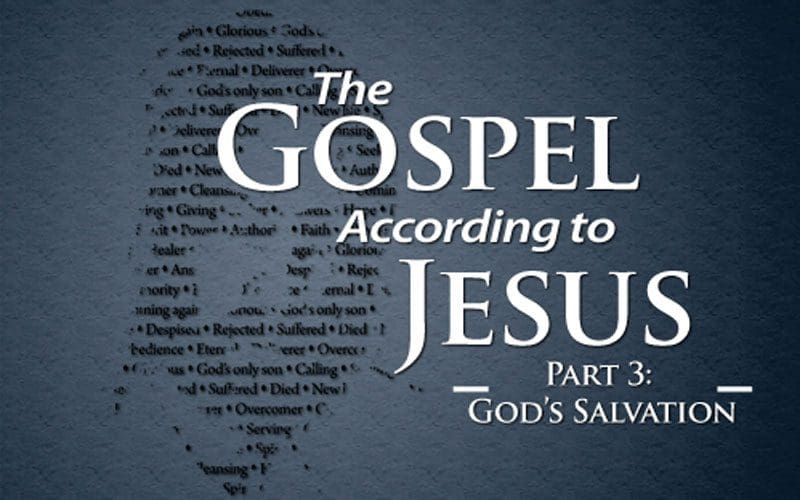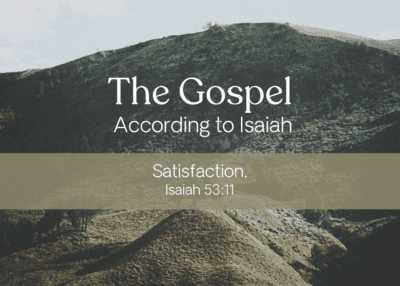“The next day as they were leaving Bethany, Jesus was hungry. Seeing in the distance a fig tree in leaf, he went to find out if it had any fruit. When he reached it, he found nothing but leaves, because it was not the season for figs. Then he said to the tree, “May no one ever eat fruit from you again.” And his disciples heard him say it.
On reaching Jerusalem, Jesus entered the temple area and began driving out those who were buying and selling there. He overturned the tables of the money changers and the benches of those selling doves, and would not allow anyone to carry merchandise through the temple courts. And as he taught them, he said, ‘Is it not written: “My house will be called a house of prayer for all nations”? But you have made it a den of robbers.’” Mark 11:12-17 (NIV)
God is always looking for fruit in the lives of His people and today we follow Jesus as He looks for fruit. He looks for fruit in a tree, He looks for fruit in the temple and He looks for fruit in our lives today. What fruit is God looking for? How can we produce that fruit? What does a fruitful church look like? And what happens if we are not fruitful? These are big questions, and God’s Word addresses them directly.
Mark weaves the stories of the tree and the temple together because they shed light on each other. The story of the tree helps us understand what happened in the temple. And the story of the temple helps us understand what happened to the tree. Jesus uses the withered tree to show us what happens when God’s people do not bear fruit. Then He teaches the disciples how they can bear the fruit He is looking for—the fruit that He did not find in the temple.
Jesus Looks For Fruit
The next day as they were leaving Bethany, Jesus was hungry. Seeing in the distance a fig tree in leaf, he went to find out if it had any fruit. (v12,13)
The fig tree is bursting with green leaves. It looks magnificent, abundant, well watered, and healthy. Jesus goes to this tree looking for fruit, but “When he reached it, He found nothing but leaves” (v13).
Mark says that it was not the season for figs. So you would not expect to find ripe figs ready to eat. Dr. William Hendriksen says “It is important to point out that the earlier figs… begin to appear simultaneously with the leaves.”[1] This tree didn’t have fruit even beginning to form. It was nothing but leaves.
Jesus was welcomed to the Holy City with great enthusiasm, on Palm Sunday. But now He looks behind the leaves to see what fruit might be there. What He finds on the fig tree is a picture of what he finds in the temple.
Mark puts the story of the tree alongside the story of the temple. “Jesus entered Jerusalem and went to the temple. He looked around at everything” (v11). God’s Son is coming to God’s temple and He is looking for fruit!
The temple is very impressive. It is buzzing with activity, and looks as though it is flourishing with life, just like the fig tree. But when Christ pulls back the leaves, He does not find the fruit He is looking for. In the temple he found ‘nothing but leaves’. So the tree really is a kind of parable of the temple.
The business of the temple
On reaching Jerusalem, Jesus entered the temple area and began driving out those who were buying and selling there. He overturned the tables of the money changers and the benches of those selling doves, and would not allow anyone to carry merchandise through the temple courts. (v15,16)
It’s important to understand what offended Jesus to the point that he drove out the money changers, and the people selling doves, and would not allow anyone to carry merchandise through the temple courts. Old Testament law required that a tax be paid when people visited the temple. This was how money was raised to maintain the temple, and all that went on there (Exodus 30:13, Matthew 17:24-27).
The temple tax was paid in ‘shekels,’ even though Israel was occupied by the Roman army and the Romans had imposed their currency on the people. When Jesus was asked about paying taxes to Caesar, he took a coin and asked “Whose face is on this?” It was Caesar’s (Mark 12:16).
Business was done in Roman currency, but the temple tax was paid in Jewish shekels. (The Romans didn’t interfere with the religious traditions of the temple) So when people came to the temple they had to exchange their currency. That’s why they had money changers at the entrance to the temple.
In addition to the money changers, there were also folks selling doves. Those who were better off would bring a lamb, but the poor would purchase these doves or pigeons to use as an offering to the Lord. Luke tells us that Mary and Joseph came to the temple eight days after the birth of Jesus to circumcise him and to offer a sacrifice in keeping with the law: “a pair of doves or two young pigeons” (Luke 2:24, and Leviticus 12:8).
People could bring their own birds or animals to sacrifice, but the animals had to pass an inspection by the priests before they could be offered as a sacrifice. The one thing you did not want was for your animal to fail the inspection. So it was better to buy from the official concession stand that was authorized by the priests.
Shutting out the nations
My house will be called a house of prayer for all nations, but you have made it ‘a den of robbers.’ (v17)
Jesus described these money changers and traders as “robbers.” It’s easy to see what happened. The money changers were hiking the exchange rate for the shekel, and the dove sellers were using their monopoly to gouge prices. But there’s another kind of robbery here that goes beyond taking people’s money.
The money changers and traders had set up their stalls in the Court of the Gentiles, which was outside the “inner courts,” where the Jews came to worship. The Court of the Gentiles was the one place in the temple area where people from any and every nation could come and offer worship to the living God. By turning this court into a market, the traders were robbing the Gentiles of the one place in the temple where God had promised them “joy in my house of prayer” (Isaiah 56:7).[2]
Then Mark tells us that Jesus “would not allow anyone to carry merchandise through the temple courts” (v16). The temple covered a vast area, and traders who wanted to move their merchandise from one side of town to the other didn’t want to go all the way around, so they would take a shortcut through the temple.
The temple that had been designed as a place of worship became a place of convenience and a place for commerce and profit. Jesus was furious about this. Zeal for God’s house consumed Him (Psalm 69:9). “He overturned the tables of the money changers and the benches of those who were selling doves. He would not allow anyone to carry merchandise through the temple courts” (v15,16).
The true business of ministry
My house will be called a house of prayer for all nations… (v17)
Jesus looks for a place where people from every background will seek and find God. That’s a marvelous vision: People from different races and different backgrounds, Jew and Gentile, rich and poor, black and white, young and old—all coming together to seek and find the Lord in His temple.
God declared that His temple would be “a house of prayer for all nations” (Isaiah 56:7), a place where people from every background would seek and find God. But that wasn’t happening at the temple. What Jesus found was a vast enterprise that squeezed out worship, and in its place offered convenience, and profit. Jesus did not find the fruit he was looking for in the temple. It was nothing but leaves.
These Scriptures speak to us today about the danger of being unfruitful—the terrible possibility that a church could look as if it is flourishing, but actually be nothing but leaves. Our church has every indication of flourishing. It is known for many good things. The leaves are obvious and they are there in abundance: But Jesus is not impressed with the leaves of activity. He pulls back the leaves, to see if there is any fruit.
The fruit of our church must include the nations, even those near to us who are ethnically, culturally, and economically very different from us. God calls us, not only to open our doors to all who would come and worship, but to welcome worshippers from every nation to join us at the Lord’s Table.
Is our church “a house of prayer for all nations?” Are we reaching out to them? Will they be welcomed? Is this a place where people are seeking and finding God? That’s the fruit Jesus is seeking.
Jesus Sustains Every Living Thing
Jesus said to the tree, ‘May no one ever eat fruit from you again.’ (v14)
Jesus uses a withered tree to show us what happens when God’s people do not bear fruit. Christ is proactive here. He causes the fruitless tree to wither and to die. This should not surprise us. The Lord gives life, the Lord sustains life, and the Lord takes life away. That is true of every insect, fish, plant, tree, animal and person, ministry or church. All things exist by the Word of His power, and when He removes His sustaining power, things wither and die.
That’s what He did with the tree. “In the morning, as they went along, they saw the fig tree withered from the roots” (v20). This was obviously a miracle, because a tree doesn’t wither in a day. The thing that surprised the disciples was that the tree had withered from the roots. It was not just that the leaves had started drooping. The tree had withered from the roots up.
The withered temple
The story of the tree is given to help us understand the story of the temple. The earliest known commentary on Mark’s Gospel was written in the 6th century by a man called Victor of Antioch. He says:
‘Jesus used the fig tree to set forth the judgment that was about to fall on Jerusalem.’[3]
If you turn to Mark 13:1, where Jesus is leaving the temple, the disciples marvel: “Look, Teacher! What massive stones! What magnificent buildings!” And Jesus replied, “Do you see all these great buildings? Not one stone here will be left on another; every one will be thrown down.” That is exactly what happened in AD 70. The temple was completely destroyed.
The magnificent ministry of the temple was all leaves and no fruit. It withered from the roots. Not one stone was left on top of another.
The withered branch
I am the true vine, and my Father is the gardener. He cuts off every branch in me that bears no fruit. (John 15:1-2)
The dead tree and the destroyed temple are pictures of what happens when God’s people do not bear fruit. Jesus calls us to bear “fruit that will last” (John 15:16). The withered tree shows us what happens when Christ withdraws His Spirit from a church (Revelation 2:5).
The life of a church does not lie in the abilities of our leaders, the gifts of our people, or the quality of our programs. These are the leaves. The leaves make a tree attractive, but the fruit of people seeking and finding God comes from the work of the Holy Spirit. If the Spirit is grieved, quenched or withdrawn from a church, the tree withers from the roots.
Mark’s strange words “It was not the season for figs” (v13), raises the question: Will there ever be a season for figs in Israel? Will God’s Old Testament people ever produce the fruit that Christ was seeking in the temple?
I’m convinced that the answer to that question is ‘Yes!’ Paul uses the analogy of a tree in Romans 11 to describe what happened to Israel. Some of the branches have been broken off (v17), but Paul says “God is able to graft them in again” (Romans 11:23). Then he speaks of a day when “all Israel will be saved” (v26).
The fruitless tree that withered isn’t the end of the story. If this seems like a picture of your life, it need not be the end of your story either. God is able to graft you into Christ, and to give you new life. The same Lord who withers a living tree is able to give life to a dead tree as well.
Jesus Teaches about Fruit-bearing
Therefore I tell you, whatever you ask for in prayer, believe that you have received it, and it will be yours. (Mark 11:24)
Our Lord’s promise about prayer, brings us back to the fruit Christ is looking for among His people in the temple: “My house will be called a house of prayer for all nations” (v17). Jesus is looking for a place where people from every background will seek and find God. And He’s telling the disciples how they can bear this fruit that He found lacking in the temple.
This is of huge importance for us. This is our calling. Christ wants His church to be “a house of prayer for all nations,” a place where people from every background will seek and find Him. That’s the fruit. Now, how will it be produced? What do we have to pursue if we want to produce the kind of fruit Christ is looking for?
Cultivate faith
‘Have faith in God,’ Jesus answered. (v22)
If the fruit of people seeking and finding God is to be multiplied among us, and if the fruit of effective prayer is to grow in your life, then here’s where we must begin: We must cultivate faith!
“I tell you the truth, if anyone says to this mountain, ‘Go, throw yourself into the sea,’ and does not doubt in his heart but believes that what he says will happen, it will be done for him” (v23). When Jesus speaks about “this mountain,” He is standing on the Mount of Olives. From this height, you can see all the way to the Dead Sea.
The Mount of Olives is still there, and so is the Dead Sea. That means no one has ever accomplished the feat of moving the Mount of Olives into the Dead Sea. Jesus is using hyperbole here to make a point: Extraordinary things happen when God’s people exercise faith in prayer.
How do you grow in faith? “Faith comes by hearing and hearing by the Word of God” (Rom 10:17). That’s the point of what we do here every Sunday. We fix our eyes on Christ and we feed on God’s Word to strengthen our faith. The more you take in of His greatness and glory, the more you will have confidence in Him. And the more you have confidence in Him, the more you will ask of Him.
According to the measure of your faith, you will find—either lacking or in abundance—your peace, your patience, your hope, your joy, your strength and your comfort. If we want to be a tree that bears the fruit of people from every background seeking and finding God in this place, we must cultivate faith!
Cultivate forgiveness
And when you stand praying, if you hold anything against anyone, forgive him, so that your Father in heaven may forgive you your sins. (v25)
If we are to be a community of believers where people from every background seek and find God, then we must cultivate forgiveness. Who are you angry with? Who frustrates you? Who has hurt you? Wounded you? Offended you?
A bitter spirit will hinder the blessing of God in you life. Holding a grudge will make you unfruitful. How can you pray if your spirit is churning up with resentment towards another person? It’s impossible. Grow in faith. Grow in forgiveness. And you will begin to pray more effectively.
How do you grow in forgiveness? Jesus said, “Love your enemies and pray for those who persecute you” (Matthew 5:44). Ask God to bless the person who has hurt you. Keep doing that and you will grow in forgiveness, more than that, you will grow in seeking and finding God.
Jesus is not impressed with the ‘leaves’ of ministry. He looks behind them to see if people are seeking and finding God. He didn’t find that fruit in the temple. Will he find it among us?
[1] W. Hendriksen, Mark p.442.
[2] I’m grateful to Professor Craig Ott for his help and input on this point.
[3] Cited in Cranfield – Mark –p.356
[elementor-template id=”128476″]




